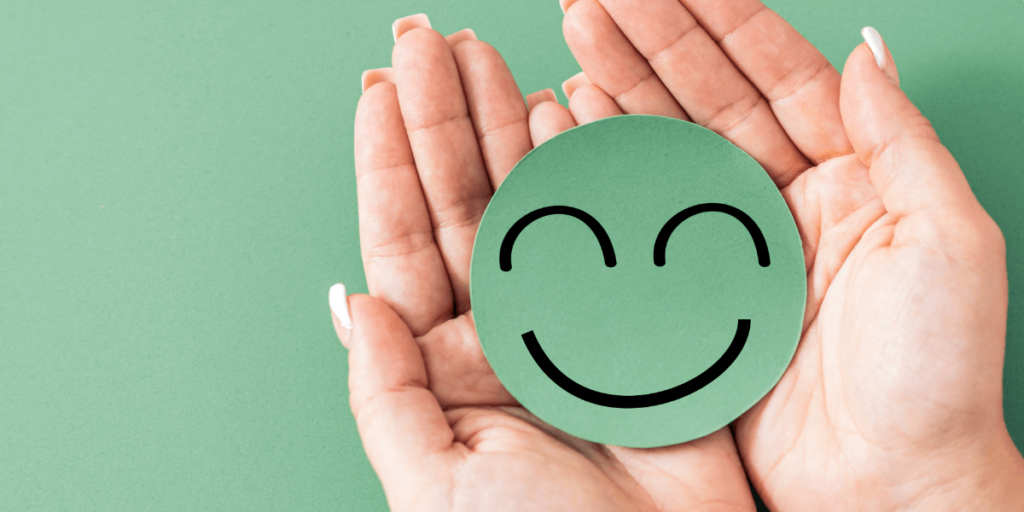The journey of motherhood is a transformative experience that extends beyond the physical act of giving birth. This period, commonly referred to as postpartum or post childbirth, brings about numerous changes that can significantly impact both physical and mental health. Recognizing the importance of maintaining overall wellbeing during this time is crucial for new mothers. By prioritizing health, new mothers can better support their bodies’ recovery process, foster stronger emotional connections with their baby, and navigate the challenges of early parenthood with greater ease.
Physical changes can be immediate or develop over time after childbirth. Mothers often face demands that strain their bodies, which underscores the necessity for a focused approach towards physical recovery. Meanwhile, mental wellbeing deserves equal attention, as many women experience emotional shifts that can sometimes lead to conditions like postpartum depression or anxiety. This dual focus on both body and mind is paramount for realigning a woman’s wellbeing post-birth.
In the throes of caring for a newborn, a new mother might overlook her personal needs, risking burnout. The lack of sleep, increase in stress, and pressure to live up to motherhood ideals can exacerbate feelings of anxiety or depression. Therefore, educating mothers and their families about postpartum care and mental wellness can significantly alleviate these challenges. By implementing effective wellness tips, mothers can strengthen their physical and mental capacities, allowing them to cope more successfully with the challenges ahead.
This article will explore various strategies for maintaining physical and mental health after childbirth. From dietary recommendations and gentle exercise to stress management and support networks, these insights aim to empower new mothers along their motherhood journey. By accessing the right resources and support systems, and with the active involvement of partners and family, new mothers can achieve a balanced approach to postpartum care.
Physical Health: Changes and Recovery After Birth
After childbirth, a woman’s body undergoes profound transformations as it adjusts from pregnancy. These changes, both visible and internal, necessitate a recovery period that focuses on restoring physical strength and wellbeing. Understanding these changes is the first step toward managing them effectively.
The weeks following delivery involve the uterus contracting to its pre-pregnancy size, and the healing of any tears or incisions that occurred during childbirth. Many women experience postpartum bleeding, known as lochia, as well as engorgement of the breasts due to milk production, which can cause discomfort. Maintaining physical health through proper nutrition and rest is essential in facilitating these processes.
Practices such as pelvic floor exercises (Kegels) can be incredibly beneficial in aiding recovery, particularly concerning the strengthening of muscles that may have been weakened during pregnancy and childbirth. Additionally, hydration plays a key role in recovery, as it encourages milk production for breastfeeding and helps the body eliminate excess fluids. Here’s a simple guide to physical health necessities postpartum:
| Essential Recovery Needs | Benefits | Examples |
|---|---|---|
| Adequate Rest | Body repair | Sleep when baby sleeps |
| Balanced Nutrition | Healing | Vitamins, minerals, hydration |
| Exercise | Physical strength | Gentle walks, Kegels |
By paying attention to these aspects, mothers can aid their body’s natural healing processes, reduce the risk of complications, and gradually regain their strength.
Mental Health: Recognizing Postpartum Depression and Anxiety
Mental health is an equally vital component of postpartum wellbeing. Following childbirth, it’s not uncommon for mothers to experience a range of emotions which can sometimes be intense and overwhelming. Being informed about postpartum depression (PPD) and anxiety is necessary to address these conditions promptly.
Postpartum depression is a mood disorder that can affect women after childbirth, characterized by feelings of extreme sadness, anxiety, and exhaustion. These symptoms make it challenging for mothers to complete daily care activities for themselves and their new baby. Similarly, postpartum anxiety may manifest as constant worry and fear that something dire might happen to the baby. Understanding these symptoms is a critical step towards seeking help.
Awareness and early recognition of these mental health issues lead to better outcomes. Treatments for PPD and anxiety may include therapy, support groups, and in some cases, medication. It’s essential for new mothers and their families to watch for signs such as:
- Persistent sadness or mood swings
- Loss of appetite or overeating
- Disinterest in activities once enjoyed
- Difficulty bonding with the baby
These challenges emphasize the importance of approaching mental health with the same level of care and commitment as physical health. By doing so, mothers can safeguard their overall wellbeing and maintain their ability to nurture both themselves and their newborn effectively.
Building a Balanced Postpartum Diet
Ensuring a balanced diet is crucial for postpartum recovery, providing the nutrients necessary to support healing, energy levels, and milk production for breastfeeding. A thoughtful approach to nutrition can drastically influence a mother’s recovery and wellbeing journey.
A healthy postpartum diet should be rich in whole foods, such as fruits, vegetables, lean proteins, and whole grains. These food groups offer vital vitamins and minerals that aid repair and growth. For example, leafy greens and citrus fruits provide Vitamin C, which is vital for wound healing, while lean meats and legumes supply iron, helping restore hemoglobin levels after the blood loss during childbirth.
The concept of frequent, smaller meals can keep energy levels stable and prevent fatigue, an important consideration given the erratic sleep patterns new mothers often face. Incorporating foods rich in Omega-3 fatty acids, such as fish and flax seeds, can also aid cognitive function and mood stabilization.
Maintaining a balanced diet:
- Stabilizes energy levels
- Supports milk production
- Enhances healing and immune function
Here’s a simple guideline showcasing essential nutrients and their sources:
| Nutrient | Function | Food Sources |
|---|---|---|
| Protein | Tissue repair and growth | Chicken, fish, beans |
| Iron | Replenishes blood supply | Leafy greens, lean meats |
| Calcium | Bone health | Dairy products, fortified juices |
| Omega-3 fatty acids | Supports cognition and mood | Fish, walnuts, flaxseeds |
Eating a nutrient-dense diet not only aids physical recovery but also supports mental health, enabling new mothers to manage the challenges of motherhood with enhanced resilience.
Incorporating Gentle Exercises into Your Routine
Physical activity post-childbirth can feel daunting for many new mothers, but integrating gentle exercises into a routine is highly beneficial. Exercise supports muscle tone, improves mood, aids circulation, and enhances overall physical and mental wellbeing.
Before embarking on any exercise regimen, it’s essential for mothers to consult their healthcare provider to ensure it is appropriate for their specific recovery needs. Typically, light activities such as walking or gentle yoga are excellent starting points. These exercises are low-impact, easily adjustable to fit various fitness levels, and can often be done alongside the baby, fostering bonding time.
Additionally, pelvic floor exercises, or Kegels, remain vital for strengthening muscles stretched during delivery. These exercises can assist in reducing postpartum incontinence and improve overall pelvic health. Engaging in short, regular sessions such as a daily 10-minute walk or 15-minute postpartum yoga can make a significant difference over time.
Benefit from a simple exercise routine:
- Improves physical health and flexibility
- Boosts mental health by reducing stress
- Increases energy levels and supports weight management
By making exercises a communal or partnered activity, mothers can find enjoyment and stronger connections with peers or family members. Embracing a phased approach to physical fitness enhances the journey towards regaining pre-pregnancy strength.
The Role of Sleep in Postpartum Recovery
Sleep is a precious commodity for new parents; however, its role in postpartum recovery cannot be overstated. Quality sleep helps the body repair itself, replenishes energy, and supports emotional balance, making it a cornerstone of both physical and mental recovery after childbirth.
New mothers often experience disrupted sleep due to the demands of infant care, which in turn can contribute to feelings of irritability or overwhelm. Developing strategies to optimize sleep, even in short bursts, is crucial. One approach is “sleep when the baby sleeps,” which encourages new parents to rest during the baby’s downtime instead of trying to accomplish other tasks.
Creating a conducive sleep environment by ensuring the bedroom is dark, cool, and quiet can improve sleep quality. Additionally, establishing a relaxing pre-sleep routine, such as a warm bath or gentle stretches, can signal the body to prepare for rest.
Strategies to improve sleep:
- Prioritize naps and rest periods
- Create a calming sleep environment
- Collaborate with partners to share nighttime duties
Partners and family members play a pivotal role in creating opportunities for the mother to rest. Sharing nighttime duties or providing support during the day allows the mother to focus on her recuperation and wellbeing.
Managing Stress and Emotional Wellbeing
The postpartum period can be overwhelming as mothers adapt to the new demands of caring for an infant while recovering from childbirth. Managing stress effectively is vital for sustaining both physical and mental health in this phase.
Mindful practices such as meditation and deep breathing exercises can be incorporated into daily routines to reduce stress levels. Even short, purposeful pauses focused on breathing can bring calm and clarity amid hectic periods. Activities that encourage relaxation, like listening to music or engaging in hobbies, can also significantly alleviate stress.
The importance of communication cannot be understated as staying connected with supportive family and friends helps distribute the emotional load and affirms that new mothers aren’t navigating their journey alone. A key to managing stress effectively is setting realistic expectations; acknowledging that it’s okay to ask for help and that perfection isn’t requisite in motherhood.
Ways to mitigate stress:
- Practice mindfulness or meditation
- Set realistic daily goals
- Rely on social networks for support
By implementing these stress management strategies, new mothers can enhance their emotional wellbeing and create a nurturing environment for their infant, themselves, and their families.
Finding and Joining New Parent Support Groups
Isolation can be a significant challenge for new mothers, especially those transitioning from careers or social environments into the demanding world of infant care. Participating in new parent support groups offers a vital network of social interaction, emotional support, and practical advice.
Support groups provide a space for mothers to share experiences, challenges, and solutions, reducing feelings of loneliness. These groups can be in-person meetings or online communities, providing flexibility in terms of participation. Attending these groups creates opportunities for mothers to forge new friendships, learn from others’ experiences, and build a community that understands their current phase of life.
Support groups can be a source of:
- Practical advice on baby care and parenting challenges
- Emotional support and encouragement
- Networking and community building
By actively engaging with these groups, new parents gain invaluable insights and foster relationships that can improve their confidence and competence in parenting. This sense of camaraderie is essential for combating the isolation many new mothers feel during the postpartum period.
Partner and Family Involvement in Postpartum Care
The postpartum phase not only requires the mother’s adjustment but also generates shifts within the family dynamic. Partner and family involvement are critical to facilitating a supportive environment that promotes efficient recovery and adaptation.
Partners and family can provide practical assistance with household tasks, such as cooking or cleaning, allowing the mother to rest and recover. Emotional support is equally important, as understanding and empathy during this time help to reinforce the mother’s emotional resilience.
Active involvement also includes participating in baby care tasks, such as diaper changes and feeding times. This shared responsibility can nurture bonds within the family and alleviate the workload on the mother, contributing to her overall wellbeing.
Ways to support postpartum care:
- Share household responsibilities
- Encourage open communication and emotional support
- Participate in baby care routines
Recognizing and valuing each family member’s role in postpartum care encourages a cooperative and nurturing family environment, which is essential for a smooth transition into parenthood.
Self-Care Strategies for Busy Mom Life
Balancing the demands of motherhood with self-care might appear challenging; however, personalized strategies can help new mothers prioritize their needs without neglecting their responsibilities.
Self-care begins with setting boundaries and recognizing limitations. This means understanding that it’s okay to say no to additional commitments and focusing on essential wellbeing practices. Carving out time for activities that bring personal joy or relaxation is vital, whether it’s reading, walking, or enjoying a hobby. Even brief periods dedicated to self-care can recharge the mind and body.
Effective time management, utilizing planners or apps, can help mothers find time for themselves among numerous duties. Additionally, reconsidering typical chores and opting for simpler solutions, like meal prepping or using delivery services, can free up time.
Simple self-care tips:
- Create a routine that includes personal breaks
- Use technology for organization and efficiency
- Simplify tasks and set manageable goals
These strategies emphasize the importance of self-care as not only a personal benefit but as a part of healthy family dynamics by ensuring the mother remains energized and engaged.
Resources for Continued Support
Numerous resources are available to support new mothers as they navigate the complexities of postpartum recovery. Accessing these can provide valuable information and assistance in fostering health and wellbeing.
Healthcare providers and pediatricians offer medical guidance tailored to the specific needs of postpartum mothers and their infants. Community centers often provide parenting classes, support groups, and activities, allowing mothers to engage in educational and social opportunities.
Online platforms, such as blogs and forums, host communities where mothers can share insights, advice, and encouragement. Additionally, mental health resources such as counseling services are available for mothers experiencing postpartum depression or anxiety.
Available resources include:
- Healthcare professionals for medical advice
- Community centers with parenting programs
- Online forums and mental health support services
By taking advantage of these resources, new mothers can cultivate a foundation of knowledge and support that enhances their ability to thrive during the postpartum period.
FAQs
1. How soon after childbirth can I start exercising?
Consult your healthcare provider before beginning any exercise regimen. Generally, light activities such as walking can be resumed a few weeks after delivery, with more intensive exercises incorporated as advised.
2. What are the signs of postpartum depression I should be aware of?
Common signs include persistent sadness, extreme fatigue, disinterest in the baby, and changes in appetite or sleep patterns. If you experience these, seeking professional help is important.
3. How can I improve my sleep quality despite having a newborn?
Focus on napping when the baby sleeps, create a calming sleep environment, and share nighttime duties with a partner to maximize your rest opportunities.
4. Are there foods that I should avoid during the postpartum period?
It’s important to avoid foods that can irritate the digestive system or affect breast milk quality, such as alcohol and certain caffeinated products, and focus on nutrient-dense options instead.
5. How can family and partners best support a new mother?
By sharing household and childcare responsibilities, offering emotional support, and encouraging the mother to take time for herself, family and partners can significantly aid in postpartum recovery.
Recap
In summary, the postpartum period is a significant time of adjustment that requires focused attention on maintaining both physical and mental wellbeing. Understanding bodily changes and dietary needs is fundamental to supporting recovery. It’s equally important to recognize and address mental health issues like postpartum depression and anxiety by utilizing available resources and support systems. Incorporating gentle exercise, prioritizing sleep, and managing stress are essential strategies for enhancing postpartum health. Engaging in support groups, and involving partners and family in caregiving responsibilities, provides a strong support network. Lastly, self-care plays a crucial role in enabling mothers to maintain their wellbeing while nurturing their new family unit.
Conclusion
The path of motherhood is filled with profound transformations that affect both physical and mental health. As such, a structured approach to wellness post childbirth can pave the way for a healthier, more enjoyable journey. Proper nutrition, exercise, and sleep lay the foundation for physical recovery, while understanding mental health challenges and building a supportive network address the emotional aspect of this life change.
Support groups and the active involvement of partners and family create a nurturing environment that fosters resilience and confidence in new mothers. By acknowledging their own needs and embracing self-care strategies, mothers can hone their ability to care effectively for their newborns while also thriving individually. Each mother’s journey is unique, and finding balance is key to navigating the complexities of postpartum recovery.
Armed with the right resources and an understanding of the multifaceted aspects of postpartum care, new mothers can embark on their motherhood journey with confidence, ensuring health and happiness for both themselves and their families.
References
- World Health Organization. (2020). Postpartum Care of the Mother and Newborn: A Practical Guide. WHO.
- Mayo Clinic Staff. (2021). Postpartum Care: What to Expect After a Vaginal Delivery. Mayo Clinic.
- American Psychological Association. (2019). Recognizing and Treating Postpartum Depression. APA.



